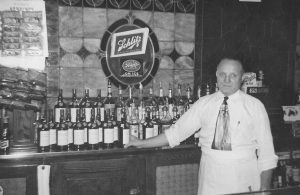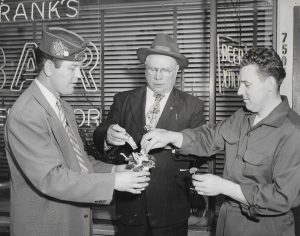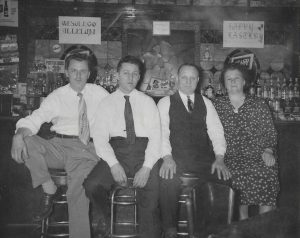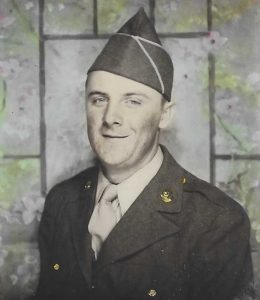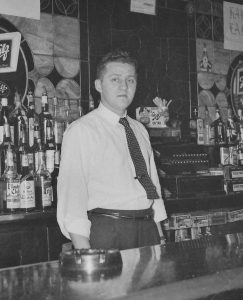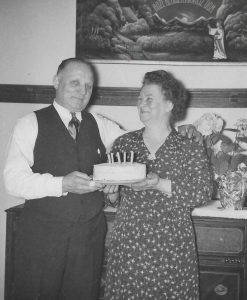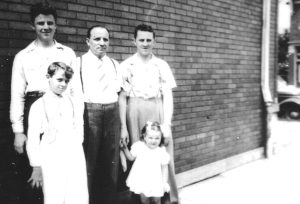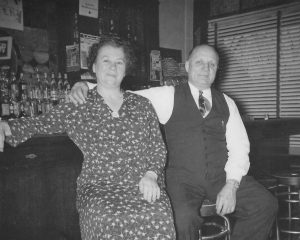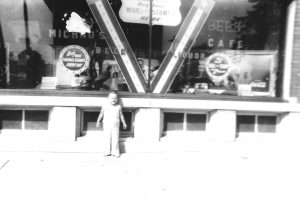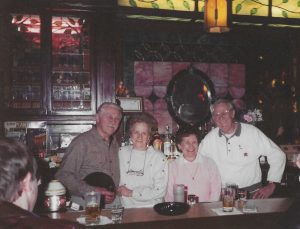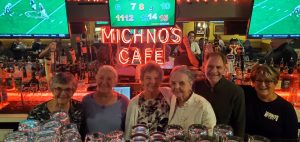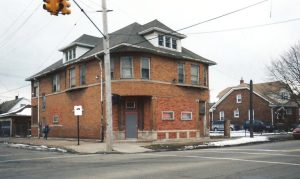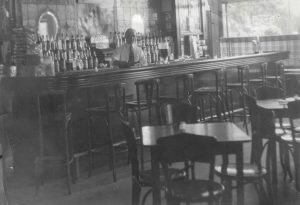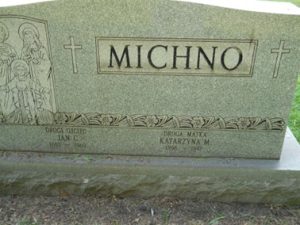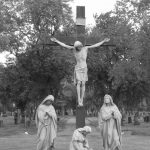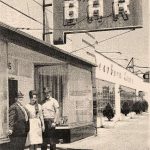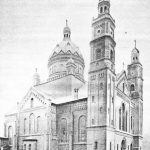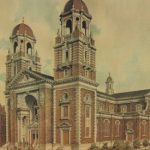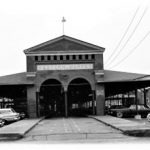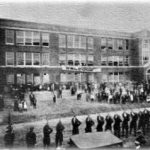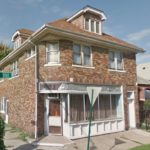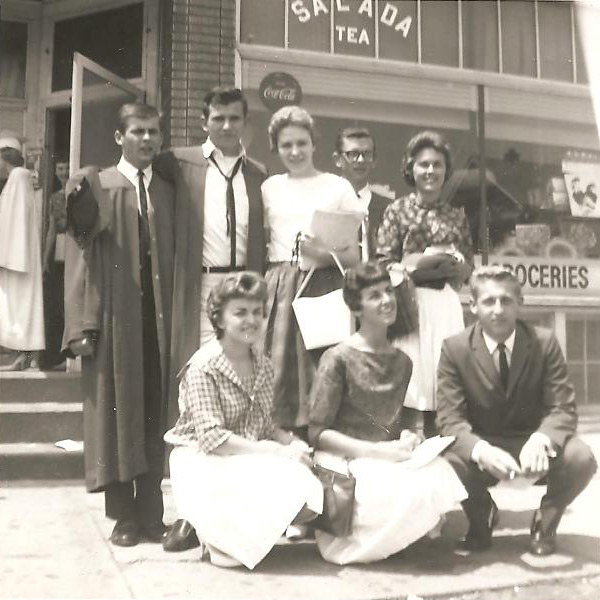A HISTORY OF MICHNO’S CAFÉ
4401 CENTRAL STREET, DETROIT 48210
Michno’s Café, known to many as Michno’s Bar, dates back to 1939, when Jan (John) C. Michno saw an opportunity and purchased the business. Located at 4401 Central Street on the northwest corner of St. Stephens and Central in Southwest Detroit, the bar was ideally located, as it was just a short half-block from St. Stephen Catholic Church in the heart of Detroit’s Polish American community. John was working at the Ford Motor Company’s Rouge Plant when he purchased the bar.
The late 1930s were an ideal time to own a bar. In 1920, Prohibition—the illegal manufacture and sale of alcohol—had become effective with the adoption of the 18th Amendment. But on December 5, 1933, the 21st Amendment was ratified, repealing Prohibition. John Michno probably bought the bar as an investment.
The history of Michno’s Café is very closely intertwined with the history of Central Creamery, a once-thriving dairy business in west side Detroit’s Polonia. The families that owned the two businesses were related by marriage, as will be revealed later. Central Creamery was located at 4381 Central, on the southwest corner of St. Stephens, right across the street from Michno’s Café.
Jan (John) Casimir Michna (January 28, 1892 – December 15, 1969) was born in Łańcut, a town in southeastern Poland approximately 114 miles east of Kraków and about 50 miles from the border of Ukraine. He immigrated to the U.S. in approximately 1914, at which time his name was inadvertently changed to Michno.
John met Katarzyna (Kathryn) M. Rachfal (April 24, 1896 – October 16, 1997) in an apartment building in the St. Stephen neighborhood, south of where Michno’s was located. Kathryn was also born in Łańcut. Both she and John were members of St. Stephen Catholic Church.
John had two brothers. Andrew Michno was in the Polish Underground in Poland. The Russians were prepared to take him to a concentration camp, but he committed suicide before they could do so. Walter Michno was a major in the Polish Army during World War II and was considered a doctor after tending to many wounded men. He died in a Russian concentration camp in Siberia after the war.
John and Kathryn were married in approximately 1915. They had six children, all born in Detroit. Stella L. Michno (April 4, 1917 – August 19, 2003) married John W. Zaydel (January 13, 1914 – October 29, 1966), whose father, Walter Zaydel (July 15, 1889 – October 15, 1961), owned Central Creamery. Walter immigrated from Krosno, Poland. John was also a partner in the creamery and worked with Walter there for several years. John and Stella’s children were Loretta M. (b. April 29, 1940), Aurelia J. (b. February 26, 1943), Theresa F. (b. October 5, 1944), and Mary Ann (b. September 13, 1949).
Walter J. Michno (November 9, 1918 – October 11, 2008) married Eleanor Cieslak (March 2, 1919 – November 17, 1992). Their children were Christopher (b. March 3, 1947) and Cynthia (b. August 19, 1949). Walter served in the U.S. Army during World War II. The family remained in the St. Stephen Parish for many years and later moved to East Dearborn.
Frank B. Michno (August 21, 1920 – April 7, 1988) was married to Marian H. Miedlar (July 29, 1920 – April 29, 1989), and they had a son, Gregory F. Michno (b. October 7, 1948). Frank served in the U.S. Navy during World War II on the USS Pampanito, a submarine that today is parked at Fisherman’s Wharf in San Francisco. It has been designated a National Historic Landmark.
After the war, Frank purchased a bar in Southwest Detroit, which he named Frank’s Bar. He ran Frank’s Bar, located at 7505 Michigan Avenue between 51st and 52nd Streets, until he sold it in approximately 1951. Later in the 1950s, Frank partnered with John Zaydel to run P&M Hardware (later J&Z Hardware) on Michigan Avenue between Freer and 51st Streets. Frank died in Port Charlotte, Florida.
Anthony (Tony) N. Michno (June 5, 1926 – December 1, 2007) also served in the U.S. Army during World War II. Tony married Josephine Dudek (March 6, 1925 – September 22, 2005), who grew up on Cabot Street in Southwest Detroit. The couple had five children: Janice (b. April 8, 1950), Ronald (b. November 25, 1951), Barbara (b. February 29, 1956), Joan (b. March 6, 1957), and Daniel (b. July 19, 1966). The family remained in the St. Stephen Parish until 1958.
Bernard (Ben) Michno (November 15, 1932 – February 29, 2020), served in the U.S. Navy. He married Marie M. Fedullo (September 10, 1936 – April 17, 2001). Their children were Mary (b. January 23, 1960), Ben, Jr. (b. May 19, 1961), Michael (b. October 30, 1962), Thomas (b. August 7, 1964), and Patricia (b. October 1, 1966). Ben enjoyed a long career working for General Motors.
John Michno (1934 – 1936) was John and Kathryn’s youngest child. This baby is buried in Holy Cross Cemetery.
When John Michno purchased his bar in 1939, it was only 17 years old, as the structure was built in 1922. He quit his job at the Ford Rouge Plant to run the bar. He and Kathryn lived on the upper level of the building. Their son Tony helped run the business at that time. Their son Walter soon joined them to help run the bar.
Tony’s family lived in the upper level of a two-story home at 4717 Central, in the first block south of Michigan Avenue. Walter’s family lived in the lower level. The house remained in the family for decades.
Walter and Tony assisted their parents with running Michno’s Café until they entered the service. Both joined the U.S. Army before the war ended. Tony served in the Pacific and Walter served in Europe. Their brother Frank also helped out in the bar. After World War II, Walter and Tony took over the operation of Michno’s Café until they sold the business in 1990.
Michno’s was a mainstay in the neighborhood, and its close proximity to St. Stephen Catholic Church and a few veterans’ halls made it a convenient gathering place for parishioners and veterans alike, where they caught up on current events and exchanged news. Kathryn Michno went to Mass at St. Stephen every morning, and the Dziennik Polski (“Polish Daily”) and West Side Courier newspapers were delivered to the bar. Michno’s supported and was heavily involved in activities at the Sgt. Stanley F. Romanowski Post No. 6896 at 4300 Lonyo, south of Michigan Avenue, and the Knights of Columbus – Holy Cross Council No. 2739 at 4381 Larkins.
The entire Michno family was very close-knit, but of the younger generation, no one was closer to the bar than Tony and Josephine’s son Ronald (Ron), born in 1951. Ron has spent the majority of his life working in Michno’s Café. One could say that he grew up in Michno’s Café, and his heart remains in the business today as he carries on his family’s legacy. Ron’s earliest recollection of being in the bar is during Halloween, when he recalls bar patrons throwing coins into his trick-or-treat bag. It was during the mid-1950s when he was kindergarten-age.
During an interview, Ron stated, “Even at a young age, I think that neighborhood had a lot of impact on me, even after I moved, because I spent so much time in that neighborhood as a child and working there when I was going to college and after I graduated.”
Ron recalled that all the family celebrations—Easter, Christmas, and the like—were celebrated in the upper level of the bar, where his grandparents lived. The bar was closed at the time, which was rare, but they did close for Christmas and Easter. On those occasions, as the adults gathered in John and Kathryn’s home in the upper quarters of the bar, Ron and his siblings played downstairs in the bar.
In the mid-1960s, Ron and his siblings watched sports and played pool in the bar. They drank little bottles of Coca-Cola and ate salami sticks. Every now and then, someone would come down to the bar to get drinks. He explained that in the hallway leading back into the kitchen, there was a hole in which you could talk, and there was another hole upstairs—sort of like a makeshift intercom system. But it wasn’t electronic. Kathryn, from her roost upstairs, could hear the person who was speaking into the hole downstairs, and that’s how communication took place between the bar downstairs and the living quarters upstairs.
Just as John and Kathryn’s private life was comingled with their employment, so too was Ron’s leisure time blended with his time spent at Michno’s Café.
In addition to the bar being his playground, throughout his grade school years, Ron also played baseball at the nearby St. Stephen playground with his best friend from St. Stephen. On those occasions, he frequently walked over to the bar. Its close proximity to St. Stephen made it quite convenient and also understandable how Michno’s would become known as St. Stephen’s bar.
Inside the bar, his dad Tony showed him how to move tables, sweep and mop the floor, and wipe the tables down. At noon, the St. Stephen church bells would ring, and everyone would go home from the playground. After lunch, Ron would go back to the playground and play some more baseball. Tony worked until 5:00, so Ron would sit in the bar and wait for his dad to finish working. The lines between Ron’s play time and time spent at the bar became blurred from a very young age. The St. Stephen playground and Michno’s Café were nearly indistinguishable from his perspective.
And for just about everyone living in the area, the lines between St. Stephen Church and Michno’s Café were nearly as indistinct.
When Ron got his driver’s license, he started cleaning the bar on the weekends, as he was in school during the week. At around 20 years of age, Tony taught him how to tend bar. He was nervous, but he thought that it was really cool, and also very interesting.
He recalled that the cash register didn’t go over $5. He remembered the “big, giant buttons” on the cash register. The customers knew exactly what their bill was going to be and constantly tested him on his math skills. They served two sizes of draft beer: 20 cents and 30 cents, and most mixed drinks were 50 cents. If someone had money, they would order Scotch, or something more expensive. “We knew who those people were,” Ron recalled. “They had money. They worked for the railroad, or something like that. But most people drank a shot and a beer.”
Ron attended college at Eastern Michigan University, majoring in speech and communications. He lived on campus for the first two years and commuted for the last two years. During his last two years at Eastern, he attended school part-time three days a week and worked at the bar part-time three days a week. Tony paid him to work at the bar. Upon graduation, he worked full time at the bar, six days a week, Monday through Saturday, 10 hours a day, from 7:00 a.m. to 5:00 p.m. “I thought everybody did that,” he said. Every other week, he afforded his dad or uncle a day off by filling in for them.
The bar didn’t serve any food—only drinks—so a wait staff wasn’t necessary. Every person who worked at the bar performed every job.
As was the case in every family-owned business in the Polish American neighborhoods at the time, working at Michno’s required a commitment from all family members. Ron’s parents, Tony and Josephine, alternated the day and night shifts at Michno’s with his aunt and uncle, Walter and Eleanor. It was unusual for any of them to have someone fill in for them. When there was a wedding, one of them was able to attend, and one wasn’t. That’s just the way it was.
After graduating college, Ron continued to work full time at Michno’s Café six days a week, Monday through Saturday, 10 hours a day, from 7:00 a.m. until 5:00 p.m., until the beginning of 1975, when he became a police officer. He worked for the Wayne County Sheriff’s Department, as did his wife, She She Michno. He remained at the Wayne County Sheriff’s Department for eight years, where he worked in the narcotics division. He then worked intermittently at Michno’s during times when he was laid off but officially quit working there in 1975.
At the time, his wife’s brothers owned a bar in East Dearborn, which they were interested in selling. Ron and his wife took advantage of the opportunity and purchased the Pal-O-Mar Bar on West Warren Avenue, which they operated for seven years.
Tony, Walter, Josephine, and Eleanor Michno continued to operate Michno’s Café until 1990, when they sold it. (In approximately 2022, the building was renovated, and a beauty salon occupied the premises. As of 2025, the ownership status of the building is unknown.)
Both John and Kathryn are buried in Holy Cross Cemetery in Southwest Detroit, as are Walter, Frank, and Marian. The majority of the other deceased Michno family members who aren’t buried in Holy Cross Cemetery are buried in St. Hedwig Cemetery in Dearborn Heights.
In 1989, Ron bought Harold’s Bar at 25524 Five Mile Road in Redford Township, near the intersection of Five Mile and Beech Daly Roads. He operated it as Harold’s until 1990, when Michno’s Café in Detroit was sold. He has been operating at the Redford location as Michno’s Café since that time. In fact, Ron not only transported the Michno’s name to Redford Township, but also the iconic “Michno’s Café” orange neon tubular lettered signage from the front window of the original location, which now lights up the mirror behind the bar at the Redford Township location.
It has been written that Michno’s Café, known to most in the neighborhood as Michno’s Bar, was considered St. Stephen’s bar. During the era, the Polish communities were anchored to their churches, which were primarily Roman Catholic. The immigrants carried with them from Poland their exceedingly deep and unwavering faith, and the neighborhood church was their foundation. Everything—in fact, life itself—revolved around it. The social halls, community houses, biergardens (or bars), cafés, and Dom Polski and fraternal halls—in addition, of course, to the bakeries and grocery stores—were the additional components. In these communities, everything worked together, with the church as the focal point. The church reigned supreme, and everything else added the essential finishing touches.
But the line between religious and social was very vague because the church was also where boundless social activities took place. Corner grocery stores were notorious meeting places where people often first learned about neighborhood news and events and shared news of their own. The Dom Polski and fraternal halls were utilized not only for dances, wedding receptions, and cultural events, but also for patriotic events, political rallies, and labor union marches and speeches.
Above all, there was a marked connection between the church and its neighborhood parish bar which, along with neighborhood grocery stores, spawned a “street corner” society in these close-knit communities. Perhaps nothing demonstrates this more than the fact that parishes had what were known as their own parish bars. This close relationship was evident in the interactions between the patrons of Michno’s Café and St. Stephen Church’s parishioners.
According to Ron Michno, during the time that Walter and Tony were running Michno’s Café, it wasn’t unusual for ushers from St. Stephen to periodically walk over to Michno’s for a shot during the priest’s homily. This was during a time when serving liquor on Sundays was illegal. Walter and Tony found a way to take care of their clients despite the law by placing a sheet over the liquor bottles and removing it for their “regulars” so that they could serve them their shots, and then re-covering the bottles. There was a certain casualness in the way in which the proprietors didn’t think twice about looking after their parishioner patrons in this way.
Tony and Walter did get fined once by an agent from the Liquor Control Commission who happened to catch them in the act. During the St. Stephen festival, a Liquor Control Commission representative happened to drop in and learned of their clever ruse first-hand. They were presented with a ticket, which they promptly paid.
“Everybody was from that neighborhood,” recalled Ron Michno. When asked what growing up in such a close-kinit Polish American community meant to him, he shared the following:
“I found what it did for me—not knowing it at the time—but it really helped me communicate and have more of an appreciation and respect for that older generation. Almost every guy who came in there who was my father’s age, almost all of them were in the war, and it helped me understand why they had the values that they had, the virtues and prejudices. It helped me understand how my parents lived and how they grew up. And especially working in that environment, to think about how they grew up, and why they were the way they were. I don’t mean good or bad.
“A lot of people don’t experience working as an older teenager and in their early twenties, working with people in their sixties and seventies. I had a great appreciation for that generation. I think it did make me feel more appreciative of older people.
“That generation went through a lot. I talk to people that know almost nothing about World War II. I say, ‘My father was in World War II. How can you have no appreciation for what they went through?’
“I think about how my dad didn’t even graduate, but he was in combat in the Philippines. Then he went to St. Casimir. He went to the nun and told her why he didn’t graduate, and she said, ‘Come with me, and I’ll get you a diploma.’
“He said, ‘I’d go up to a bar and order a drink,’ and he would put on his uniform, and the same bar would give him a drink.
“The guys that came in the bar were almost all in the war. They could numb their mind a little bit by drinking. I understand that.”
Today, patrons go into Michno’s Café in Redford Township and see the neon “Michno’s Café” signage glowing from behind the bar. They frequently ask Ron if the bar is affiliated with Michno’s at 4401 Central in Southwest Detroit. And then the conversations begin. The excitement rises, the enthusiasm erupts, the memories start to flow, and the stories flourish. And Ron knows that he’s home.
Sources:
- https://familysearch.org
- https://www.findagrave.com/
memorial/150875800/jan_c- michno#view-photo=126745913 - https://www.findagrave.com/
memorial/150875846/katarzyna- m-michno#view-photo=126746016 - https://www.findagrave.com/
memorial/19243787/josephine- michno - https://www.findagrave.com/
memorial/19243800/anthony- michno#view-photo=5998482 - https://www.findagrave.com/
memorial/211717427/frank_ben- michno - https://www.findagrave.com/
memorial/211717498/marian_h- michno - https://www.findagrave.com/
memorial/229031009/john-michno - https://www.realty.com/
commercial-listings/330498890/ 4401-Central-Street-Detroit- MI-48210 - Michno, Gregory. Email to the author. West Bloomfield, MI: September 21, 2025.
- Michno, Ronald. Interview with the author. Redford Township, MI: September 4, 2025.
- Jan (John) C. Michno standing at the bar of Michno’s Café shortly after he purchased the business, ca. 1939.
- Frank B. Michno, owner of Frank’s Bar at 7505 Michigan Avenue between 51st and 52nd Streets in Southwest Detroit, supporting the Sgt. Stanley F. Romanowski Post No. 6896 at 4300 Lonyo, south of Michigan Avenue, during one of their annual Memorial Day or Labor Day fundraising events, ca. 1949.
- Anthony (Tony), Walter, John, and Kathryn, at the bar inside Michno’s Café, ca. 1939, with WESOŁEGO ALLELUJA – HAPPY EASTER signs on the wall in the background.
- Anthony (Tony) Michno in his U.S. Army uniform, ca. 1942.
- Walter Michno behind the bar, keeping things running smoothly at Michno’s Café, ca. 1939.
- John and Kathryn Michno in their home above Michno’s Café at 4401 Central Street in Southwest Detroit, celebrating a birthday, ca. 1939.
- (Front, left to right): Bernard (Ben) Michno; Loretta (daughter of Stella Michno and John Zaydel); Back, left to right): Tony, John, and Walter Michno. Taken on the St. Stephen side of Michno’s Café before Tony and Walter joined the Army, 1942. Photo by Stella Michno-Zaydel, courtesy of Greg Michno.
- John and Kathryn strike a relaxed pose at the bar, ca. 1939.
- Toddler Loretta Zaydel on the Central side of Michno’s Café, 1942. Photo by Stella Michno-Zaydel, courtesy of Greg Michno.
- Walter, Eleanor, Josephine, and Tony Michno behind the bar at Michno’s Café, ca. 1985, a short time before Walter and Tony sold the business.
- Ron Michno (second from right) in 2025 at Michno’s Café in Redford Township, with his wife of 52 years, She She Michno (far right). Also pictured, left to right, are Mary Ann, Theresa, Aurelia, and Loretta, all daughters of John W. and Stella L. (Michno) Zaydel. The original, bright neon Michno’s Café lighting from the Central Street Michno’s Café shines on behind the bar, paying homage to the enduring Michno’s legacy.
- The original Michno’s Café at 4401 Central at St. Stephens Street in Southwest Detroit. Its close proximity to St. Stephen Catholic Church (approximately one block away) made it the ideal gathering site and community networking place. Photo by Laurie A. Gomulka, December 5, 2012. Reprinted with permission.
- John Michno stands behind the bar in a hazily lit Michno’s Café at 4401 Central Street in Southwest Detroit, ca. 1939, shortly after purchasing the establishment.
- The grave marker of Jan C. (1892 – 1969) Michno and Katarzyna M. Michno (1896 – 1997) at Holy Cross Cemetery in Southwest Detroit. Sources: https://www.findagrave.com/
memorial/150875800/jan_c- michno#view-photo=126745913; https://www.findagrave.com/ memorial/150875846/katarzyna- m-michno#view-photo=126746016
Except where noted, all photos from the collection of Ron Michno. Reprinted with permission.
